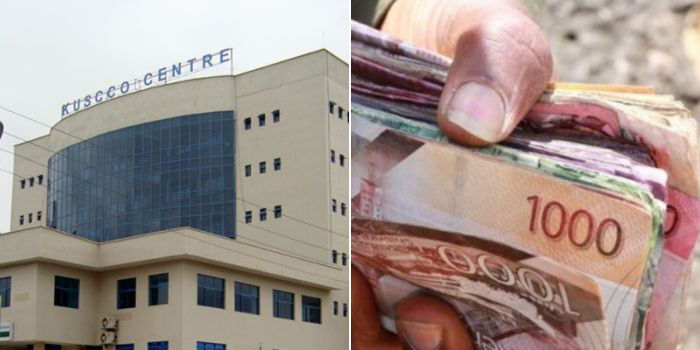Over 58 Savings and Credit Cooperative Organizations (SACCOs) across Kenya are staring at a possible auction of their properties after defaulting on loans totaling Ksh1.36 billion borrowed from the Kenya Union of Savings and Credit Co-operatives (KUSSCO).
These SACCOs had secured the loans using their members’ deposits, which currently stand at only Ksh368.39 million — leaving a huge funding gap of about Ksh987.86 million. This shortfall means that KUSSCO is unable to recover the full amount from the available collateral, prompting serious recovery actions.
To recover the funds, KUSSCO has now issued formal demand letters to all defaulting SACCOs. These letters give the affected cooperatives 14 days to either clear the outstanding balances or submit a structured repayment plan.
If they fail to do so within the stipulated time, KUSSCO has warned that it will begin auctioning the SACCOs’ assets and freeze their bank accounts to recover the debt.
A report by Business Daily has identified both large and small SACCOs among the top defaulters. One major SACCO is said to owe a staggering Ksh377.5 million. Other smaller SACCOs located in Lamu, Migori, and Malindi also appear on the default list.
The massive debt challenge has been attributed to the financial collapse of KUSSCO itself, which is now under investigation for serious cases of fraud and mismanagement. A forensic audit by PricewaterhouseCoopers (PwC) uncovered alarming financial misconduct within the cooperative.
According to the audit, KUSSCO executives forged the signature of a deceased auditor to validate falsified financial reports, risking the loss of approximately Ksh13.3 billion in SACCO deposits.
The Sacco Societies Regulatory Authority (SASRA), the body that oversees SACCOs in Kenya, has since pointed fingers at legal gaps and outdated policies as contributors to this financial mess.
SASRA claims that nearly Ksh14 billion in member funds could have been protected if stronger regulations had been in place earlier. The authority also revealed that due to the scandal, about 10% of the core capital in at least 201 SACCOs nationwide has been eroded.
In response to the scandal, KUSSCO began liquidating pledged properties in May 2025. The auction process includes plots of land, homes, and commercial buildings used as collateral by the defaulting SACCOs.
These auctions are part of a wider government-backed recovery effort aimed at repaying SACCOs whose funds were misappropriated.
To prevent such a disaster from recurring, the government has now stepped in. In May, the Ministry of Co-operatives and Micro, Small and Medium Enterprises (MSMEs) Development, led by Cabinet Secretary Wycliffe Oparanya, launched two new frameworks designed to tighten SACCO oversight and governance.
As part of these reforms, CS Oparanya formed a five-member Committee of Experts whose primary responsibility will be to review and update the SACCO Societies Act of 2008, which is widely seen as outdated and ineffective in today’s financial environment.
The unfolding KUSSCO saga highlights the urgent need for accountability, legal reforms, and stronger regulations in Kenya’s cooperative sector to protect members’ savings and restore public trust.
Join Gen Z New WhatsApp Channel To Stay Updated On time https://whatsapp.com/channel/0029VaWT5gSGufImU8R0DO30


